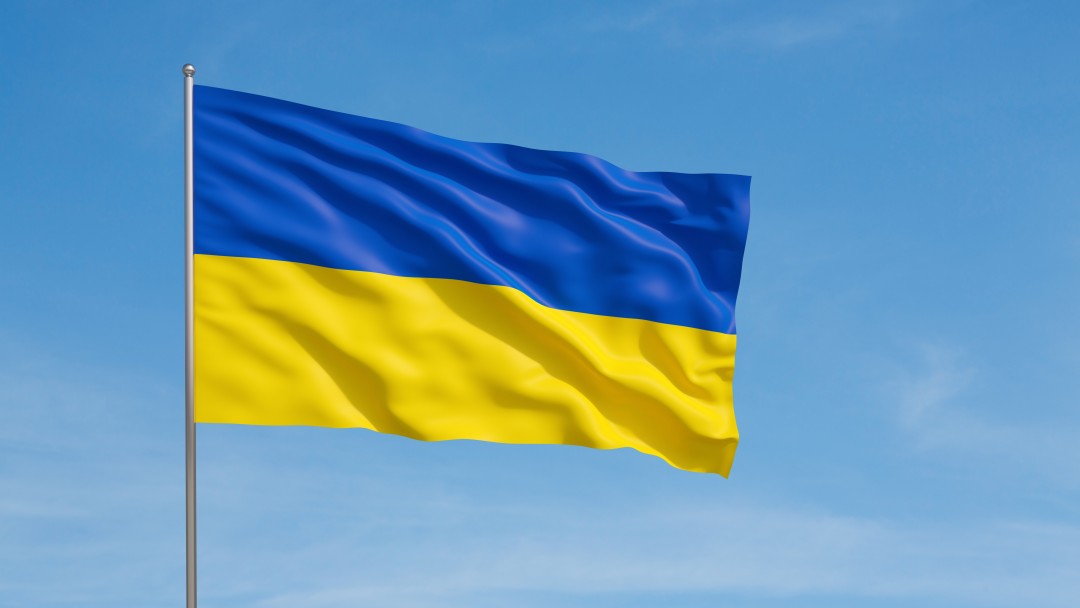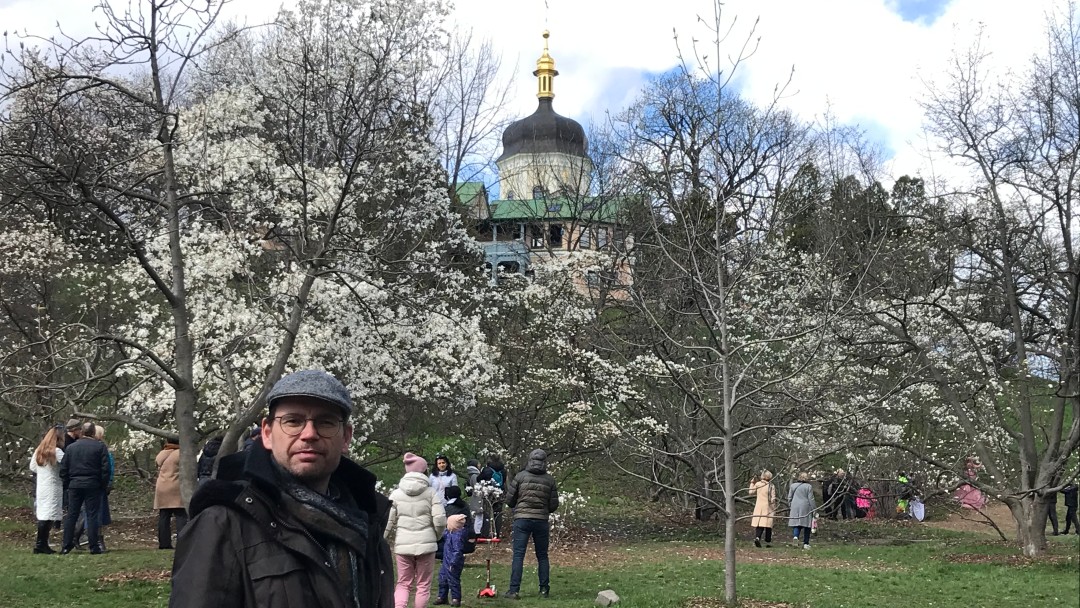News from 2023-02-24 / KfW Development Bank
Commitments doubled compared to the pre-war period
One year after the start of the war: Kurt Strasser, KfW Office Director, on support for Ukraine

Mr Strasser, you are and have been the Director of KfW’s Kyiv Office. Now you are working from Germany. Do you remember where you were on 24 February 2022 when the Russian war of aggression began?
Of course. At that time I was on holiday in Austria, my home country, and that was where I heard about it in the morning news on the radio and the television.
Did you expect this invasion?
Not to this extent. An imminent invasion by the Russians in the southeast seemed possible in order to create a land bridge to Crimea, which Russia had already annexed in 2014. That’s why we had already worked through evacuation plans with the national staff. But even military experts considered an attack on the whole country to be unlikely, partly because the Russian deployment and troop strength did not appear to be sufficient to control a country like Ukraine, which is twice the size of Germany.
How did you then proceed?
Of course, I immediately contacted the team in the Kyiv office and KfW in Frankfurt. At the same time, my mobile phone was being inundated with emails, messages and calls. We had to act fast at that point and start the evacuation immediately. Within a few days, the employees then relocated to safe regions in the country or travelled to Germany using various routes. Our office in Kyiv was closed but our ability to work was fully maintained.
What were the focus areas of KfW’s cooperation with Ukraine before the war of aggression?
We implemented projects in the areas of energy supply, municipal infrastructure and sustainable economic development, mostly on behalf of the Federal Ministry for Economic Cooperation and Development (BMZ). Among other things, it was about making buildings more energy efficient, improving electricity transmission and preparing for their integration into the European electricity market. We supported the construction of housing for internally displaced persons, an improved water supply and the construction and rehabilitation of kindergartens. With regard to sustainable economic development, our support mainly concentrated on SMEs and vocational training. The focus was on eastern Ukraine, which was particularly affected by the conflict even before the Russian attack.
Which projects have been directly affected by the war?
In accordance with the requirements by the German Federal Government and the European Union, the focus of our activities was, as mentioned, on the fragile eastern part of the country. Above all, the aim was to improve living conditions there, and the many projects mentioned regarding housing for displaced persons, childcare and water and energy supply were planned, implemented or completed there. These projects located in the east were instantly, deeply and directly affected. We didn‘t even know where our partners and contacts were.
Later, KfW-funded projects in energy and water supply were hit throughout the country because the Russian army increasingly attacked and bombarded civilian infrastructure so that people did not have any electricity or water and had no heating – the cold winter was supposed to bring the country to its knees.

How did you react to this destruction?
At the time of the Russian attack, some of the programmes had to be stopped because the projects are located in the areas now occupied by Russians. We are now making changes with the consent of the responsible donors and are attempting to use the funds where Ukraine needs them most during the crisis.
What is particularly needed in Ukraine now and where is KfW helping?
During this crisis, it is, of course, particularly important to provide people with essential goods to satisfy basic needs. KfW itself does not implement humanitarian assistance, but we have been able to help in other ways by providing housing for displaced persons, by helping with energy supply and water supply and by supporting state transfer payments. We also support financial assistance to small and medium-sized enterprises to strengthen the economy and promote employment and income. Of course, this has become more difficult due to the war and the ongoing conflict, but we always try to respond promptly to the changing situation in ways that are relevant.
In fact, the situation remains fragile and unpredictable. How is sustainable development cooperation, which is KfW’s goal, possible in this situation?
Unlike in some other fragile contexts, we are dealing with a functioning state in Ukraine. There are the relevant ministries, central authorities and institutions. We continue to have reliable counterparts; we can cooperate with effective implementation partners. This is an important prerequisite for development cooperation, which is why KfW is currently supporting Ukraine in maintaining the viability of the state, for example by financing the salaries of state officials. The country’s tax revenue fell by almost 50 per cent compared to the pre-war period.
The aforementioned programmes for the supply of water, housing, energy and healthcare continue to run and are adapted to the respective dynamic situation. KfW’s commitments have almost doubled compared to the pre-war period. We are currently implementing 34 projects worth a total volume of over EUR 1.2 billion for the German Federal Government and the EU and are cooperating with many partners such as municipalities, regional development institutions, banks and charitable trusts, as well as international organisations such as UNICEF and the International Organization for Migration, which for their part have a great deal of experience in working in conflict-affected regions and countries.
KfW even features “Wiederaufbau”, the German word for reconstruction, in its name due to its role in Germany after the Second World War. What function could the bank take on in this context in Ukraine?
We are already taking a close look at approaches and options for reconstruction. But, of course, war is still raging in the country. Long-term planning is not yet possible because the course of the conflict cannot be predicted. Ultimately, the German Federal Government will decide on how and when reconstruction activities can be started. Against the backdrop of its history, KfW will certainly play a significant role in this. I would like to emphasise that however KfW’s role in stabilisation and reconstruction develops, the responsible teams in Frankfurt and Ukraine will do their utmost to help the country and its population in the best possible way during these difficult times and provide prospects for the future.
The interview was conducted by Michael Ruffert.

Share page
To share the content of this page with your network, click on one of the icons below.
Note on data protection: When you share content, your personal data is transferred to the selected network.
Data protection
Alternatively, you can also copy the short link: https://www.kfw-entwicklungsbank.de/s/enzBWrMC.C37A
Copy link Link copied